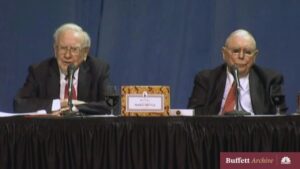A federal labor board ruling Tuesday on worker classification could make it easier for app-based gig workers to unionize.
In a ruling in a case about hair and makeup workers at the Atlanta Opera, the National Labor Relations Board applied a previous standard for determining employee status. The federal agency also announced in a news release that it had returned to that previous standard.
“Applying this clear standard will ensure that workers who seek to organize or exercise their rights under the National Labor Relations Act are not improperly excluded from its protections,” NLRB Chairman Lauren McFerran said in a statement.
The NLRB decision that the opera workers are employees could clear the way for workers for app makers such as Uber Technologies Inc.
UBER,
Lyft Inc.
LYFT,
DoorDash Inc.
DASH,
and others to continue to argue that they should be treated as employees and not independent contractors, especially for the purposes of unionizing — though the companies are trying to enshrine their preference that ride-hailing drivers and delivery workers are contractors into law in states like California and elsewhere.
“As app-based transport workers, we have long believed that despite platform companies intentionally misclassifying us as contractors, we have the right to organize our own unions,” said Nicole Moore, president of Los Angeles-based Rideshare Drivers United. “This ruling provides clarity, that indeed, the level of control these companies have over our work lives, setting our rates and managing us with algorithms and [artificial intelligence], that the federal government will back us.”
From the archives (March 2023): Uber and Lyft drivers in Massachusetts are fighting for the right to unionize
Uber and Lyft did not immediately return a request for comment. When reached for comment, a DoorDash spokesperson referred MarketWatch to the lobbying group that represents the gig companies, which spoke out against the decision.
“This is yet another example of regulators trying to push an ideological agenda with little regard for the impacted workers,” said Kristin Sharp, chief executive of Flex. “The 21st-century economy is enabled by technology and defined by unprecedented worker flexibility and choice — and we should be celebrating these options, not limiting them.”
Labor attorney Shannon Liss-Riordan, who has been suing gig companies for the past decade, said Tuesday that it’s too soon to tell what impact the ruling will have on gig workers, especially because the NLRB’s decisions will likely go to the federal courts. But she said the “decision is an important one for shifting the pendulum back toward the board properly recognizing workers as employees.”
Service Employees International Union President Mary Kay Henry said in a statement: “Today’s ruling is an incredible victory for frontline workers who have been organizing and fighting for the right to unionize for years and gives more workers, regardless of where they live or who signs their paycheck, the ability to collectively bargain for a better workplace.”
Meanwhile, the Labor Department has proposed a new rule that could change the status of many workers from independent contractors to employees. The gig companies’ lobbying group has pushed for that rule to be delayed because of the departure of Marty Walsh as labor secretary earlier this year. President Joe Biden’s nominee to replace him, Julie Su, has yet to be confirmed by the Senate.
From the archives (Oct. 2022): ‘Gig work’ rule is in Biden administration’s crosshairs
This post was originally published on Market Watch






